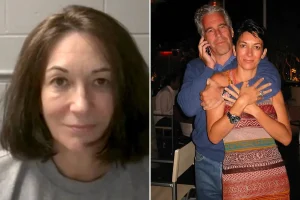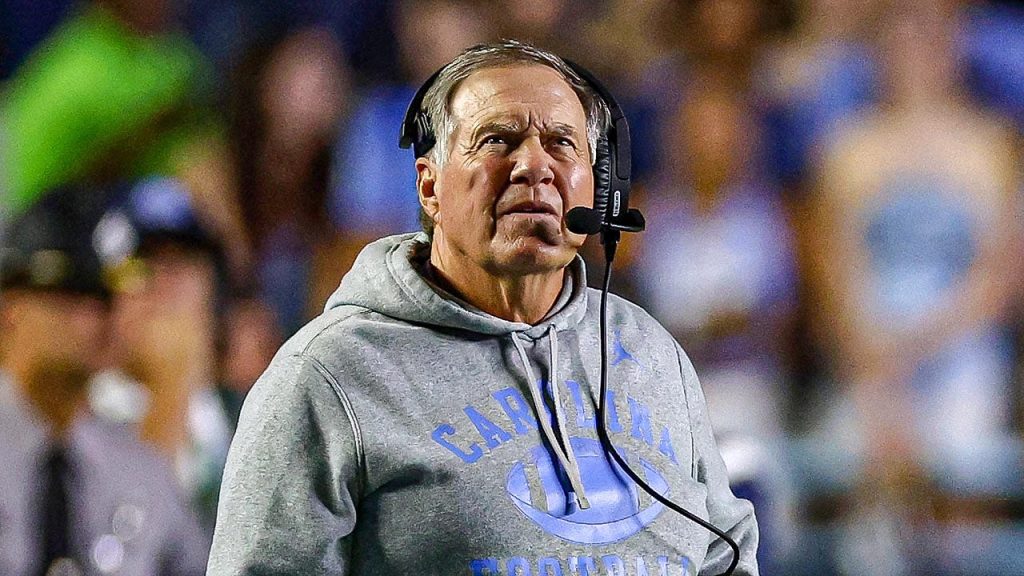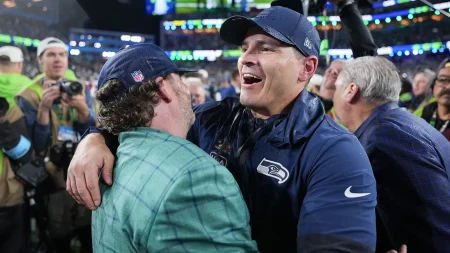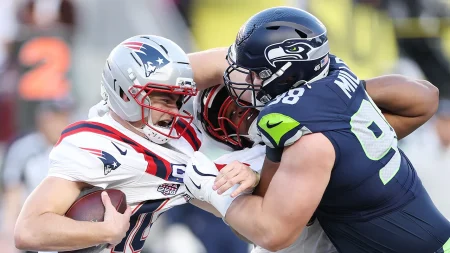UNC Accused of Secretly Hiring Bill Belichick in Violation of Open Meeting Laws
A recent lawsuit has thrust the University of North Carolina into the spotlight, accusing the institution and its board of trustees of conducting important business behind closed doors—most notably the hiring of legendary NFL coach Bill Belichick. Filed by former UNC Provost Chris Clemens and lawyer David McKenzie in Orange County Superior Court, the legal action alleges that Belichick’s hiring represents just one example in a troubling pattern of secrecy at the public university. According to the plaintiffs, UNC has established a “culture of secrecy” that violates North Carolina’s Open Meetings Law and Public Records Law, concealing “matters of grave public concern” from public view and debate.
The lawsuit specifically targets a December 12, 2024, emergency board meeting where “substantive deliberation occurred in secret” regarding Belichick’s hiring. The plaintiffs argue there was no legitimate reason for this closed session since Belichick’s “compensation package and entire hiring was already public.” The hiring deal, reportedly worth $10 million per season with additional compensation for bringing his sons Steve and Brian onto his coaching staff, represents a significant financial commitment that plaintiffs believe should have been discussed transparently. The lawsuit notes that the board “did not present any comparable thirty-year ‘net present cost’ analysis, nor did it invoke long-horizon fiscal restraint to defer that decision for a single UNC employee,” suggesting a double standard in how the university approaches different financial decisions.
Beyond Belichick’s hiring, the lawsuit points to other concerning instances of alleged secrecy, including closed-door discussions about potential conference realignment—comparing UNC’s ACC alignment with “potential financial outcomes with SEC or Big Ten membership.” Another closed session allegedly occurred in May 2024 to “debate conference realignment strategy and athletics department finances.” The plaintiffs argue that “there is no statutory exemption that permits closed discussion of institutional affiliations and budget planning,” making these sessions illegal under North Carolina law. This pattern of behavior, according to the lawsuit, involves the board invoking statutory exemptions to enter closed sessions where they discuss “broad policy or budget matters that must be debated publicly,” while maintaining “inadequate general accounts that prevent public understanding of what transpired.”
For Clemens, the former provost, the lawsuit also carries a personal dimension. He alleges he faced punishment after “leaking closed-session information” to faculty members regarding a meeting about tenure deferral policies. As he describes it, “As Executive Vice Chancellor and Provost, [Clemens] briefed deans and vice chancellors internally about the Board’s tenure policy posture after a closed session so they could manage faculty expectations.” The subsequent effort to punish him for this information sharing, he argues, “only highlights the culture of secrecy at odds with the Open Meetings Law and Public Records Law.” This aspect of the case raises important questions about transparency in academic governance and the balance between confidentiality and openness in university administration.
The lawsuit isn’t the first legal challenge McKenzie has brought against UNC regarding transparency issues. In fact, he previously prevailed in litigation against the university and its Board of Trustees following the May 2024 conference realignment session. In that case, a temporary restraining order was granted on May 16, 2024, preventing the board “from going into closed session to discuss UNC Athletics’ financials, budgeting, deficit or ongoing future conference realignment and related strategic planning.” The university ultimately settled that lawsuit with McKenzie for $25,000 in July 2024, suggesting there may be merit to the current allegations about improper closed sessions.
Meanwhile, Belichick’s tenure at UNC has begun with modest results. After decades of coaching in the NFL, most notably leading the New England Patriots to six Super Bowl championships, his transition to college coaching has been closely watched. So far, his Tar Heels team has posted a 2-2 record in his first four games—a pedestrian start for the coaching legend who had never before coached at the collegiate level. The lawsuit’s outcome could potentially cast a shadow over his hiring process, though it doesn’t directly challenge his qualifications or performance. As this legal battle unfolds, it raises important questions about transparency, governance, and accountability at public universities, particularly when making high-profile, high-dollar decisions about athletic programs that generate significant public interest.















